|
Filming today with some of our lovely team for a micro-short film about VE Day in 1945, for a community project by Brixham Future
0 Comments
Local actors are just as professional & talented as those who have travelled from far away!!4/3/2019 I am going to apologise at the start for what may seem like a rant, but this is something which seriously gets under my skin - and so I hear, under the skins of others in the area.
That is the assumption that if actors are local to an area where a production is taking place, that "local" somehow means less talented, less serious, less skilled and "just amatuer hobbyists". Devon is a beautiful area for filming and for theatre - and not only are there many fantastic local productions, but also national, and international TV and film companies, advertising agencies, and others come down to make use of the amazing locations. As a result very often, we are contacted by these companies looking for actors. This is, on the face of it, brilliant, and often can lead to some fantastic employment opportunities for us all. Equally often however, and from extremely large international, and national production companies, we are contacted for castings, and told that "as we are just local" that we will not be paid (usually not even a busfare or portfolio photos/ showreel clips) and should be doing it just for the fun and the "chance to be on TV". Now the paid/ unpaid actors dispute is not what is at stake here. To be honest if there is a student or struggling indie project asking us to get involved, I, and most of the rest of our team, will be very happy, if available, to be involved for our fares, and portfolio material. We know first hand what it is like to be getting projects underway with zero funding (remember we started with the proceeds of a carboot sale, and still mainly rely on funds raised from tabletop sales etc, due to the difficulty of finding grant funding, even with national awards and international nominations under our belt, and a 12 year track record) and I know how heartbreaking it is to be able to offer profit share and portfolio material to our casts, when really as professionals they deserve full salaries. (I can honestly say we always end a project in the green and everyone gets paid and provided with a wealth of portfolio material, but that is not the point). What I do object to, though, is multi-million pound companies, who CAN afford to pay actors, who want free labour and try to excuse it by the fact that "oh you're just local". That is not right. Large or small, you do what is within your means and feasable to recompense your cast and crew. The "just local" stigma has another effect. When I am out promoting our next production (has to be done, otherwise no bums on seats and no money for our actors!) in our local towns, I instantly get met with a small but noticable percentage of people who say they would be very interested to come "if we were not local amatuers". When I (politely!) challenge this with the correction that we are local professionals, I get met with complete amazement and comments along the line of "but youre local, so I thought you must be amateur". My standard response is that even the top Hollywood Oscar-winners, are local to somewhere, live in a town somewhere, where they are local. They live next door to someone (even if it is next mansion along!!!). On the side of that, I have done amatuer theatre. I probably will again. I have many friends who do amatuer theatre and prefer to be hobbyists; that should no way impact on how the quality of thier shows is seen. The only difference is that professionals are paid for it, and amatuers arent. (and quite honestly if a big company wants to use actors for an amatuer organisation for thier project, then they should be recompensed the same as everyone else). It is not an uncommon remark that some amateur shows can be amazing and some professional ones not (and vice versa). There is an unconcious stereotyping and stigmatising that happens. Sadly it is the arts that suffer. Local actors (professional and amatuer) are usually highly skilled, and just because they may not have traveled from somewhere else for a production, does not make them less skilled! In fact they may be greater assets to the production, with local knoweldge that can help as well (for example for an episode of a well-known daytime BBC programme, I was able to assist the producers with location scouting and arrangements in my hometown, instead of them having to travel down from London). Instead of seeing "local" as a negative, see it as a positive: local people are creating something great, and working hard. People wouldnt say a local lawyer or doctor is anything but professional, so why assume that of actors? Local knoweldge is available. Supporting local businesses and local people supports the local economy. I am not sure how to break the stereotypes - certainly one blog post won't do it, but if it reaches one person who stops to consider the points made, then it has made a difference - one drop in the ocean. And as a character says in the film Cloud Atlas; "What is an ocean but a multitude of drops?". This is a tutorial being posted by popular request.
This is something that I have created from a little bit of information, and lots of trial and error. I will just make one warning, if someone is diabetic, they may not want to get this in their mouth. As you will see, I have found that this is best prepared three to four hours before it is needed. I apologize that I do not have exact ratios or amounts - I have always done it by eye, usually on set in the middle of nowhere, while also directing (the joys of multitasking on indiefilms!) and not measured it. You will need: - Tubes of red food colouring (I get mine from Co-Op) - this gives a strong red colour. Get more than you think you will need. - Golden Syrup (in the USA, I believe you can substitute corn syrup) - this provides the consistency of the blood. - A jar of ground coffee - this darkens the blood, to a realistic shade - Water - needed to dissolve the coffee - Two receptacles, one for mixing the blood, and one for mixing the coffee. You will want to experiment with this, a few times. I developed this for our feature film Mordred, which with 6th Century wounds and killings, certainly was going to need blood! 1) Get your blood receptacle. Pour in your Golden Syrup, and the red food colouring, and mix thoroughly, then let stand. 2) Get your second receptacle, and pour in some instant coffee powder. add just enough water to dissolve it. This is your darkening agent. Once stirred and dissolved into sticky glop, add it cautiously to your blood mix in the first receptacle. Do be aware a little coffee goes a long way in this so be careful how much you add. You can always add more. 3) Lots and lots of stirring - make sure it is all completely mixed. For the best result, leave your blood to stand for a few hours - even better if its used the next day. The longer it waits, the more it darkens and gets slightly congealed, and more blood-like. I always get a froth on top that I have to skim off, but the blood underneath is a gory joy to behold. :) Keep your melted coffee gloop in case you need to make your blood darker (remember blood can look a bit different depending where on the body it is coming from) I am not going to guarantee that this washes out of costumes, i have had mixed results, but your best bet is to soak the costume in water and stain-remover agent, as soon as you can, within a few hours before the blood has dried. Photos modeling lovely blood with Ryan Hannaford and David Welland, filming Mordred. This blood was freshly made and therefore lighter and more runny than it became later in the day. If you have refinements, please comment with them - I have lots more projects coming up, needed lovely stage blood. In light of recent issues in the news with regard to actors being taken advantage of - in a sexual manner - by a certain famous Hollywood producer Harvey Weinstein, it seems a good point to highlight the issues faced by actors, and how actors can keep safe, as well as on how production teams can also mimimise the risks.
Now of course, when you boil down to it, there are all sorts of dangers in a theatre or on a film set, and not just linked to people, but in this one, we will be looking simply, at the sexual safety of actors. Now, as an actor myself, I have encountered problems. In my early twenties, I went for an audition that I found online, it all seemed OK and legitimate, the guy clearly knew all the "right" answers, at a "studio" - turned out to be someones house - and after being locked in a room, I ended up departing through the window. Luckily, that was my scariest experience, though I often get social media messages from guys thinking that messaging an actress, means they are on to some promiscuous woman who is going to do "anything". Nothing could be further from the truth (as they are emphatically informed, a few seconds before being blocked!). When casting projects, on the other hand, I have, over the years, had applications from ladies, who, (presumably not realizing that I am female) have sent explicit photos of their nether-regions, and comments like "I love to cook for men" and "I will do anything for this role, please see my attached photos". I have also had guys send nude pictures for the same reason (not the laughable dickpics, but posed nudes). Sorry to say, those applications end up in the proverbial bin, but it has its sad side. People should not feel that they have to prostitute themselves to get a role. More infuriatingly, again over the years, I have had a small but upsetting number of people join productions who have been seeking various .. shall we say.. romantic hookups, or who have been unable to respect peoples personal boundaries. They have usually been rather surprised and not a little disappointed, when asked to leave! One person actually told me they had hoped we were a front for a swingers club, and were taken aback, not to mention extremely disappointed, when we proved to be exactly what we claim to be, a team of people creating theatre and film projects. Sometimes acting - and modeling - does ask for nudity or implied nudity for some roles. They are rare but not unknown with our team. As a director, if a role asks for something like that I am extremely careful to state that upfront, check the ages of everyone involved or present in the scene, and make sure that during filming / performance and rehearsals that we have a DBS-checked safe-guarder (I dont care that we are all adults, safeguarding is still a thing that I think is critically important) present, and that all actors are repeatedly asked to not cross any personal comfort zones, and to say immediately if unhappy or uncomfortable with anything. As an actor, leaving aside the fact I am not in any way a supermodel, I have done these kind of roles, and I consider such jobs very carefully - if I am auditioning for a role that involves these, I check out the company carefully. Do they have an established track record? Who is present at the time? Where is it being done? Only if I am completely comfortable, do I even audition. In our auditions, I never mind if someone brings a friend the first time they come to meet us. If someone is under 16 I insist on attendance with a parent. When I am going for an audition, I always inform people (usually my mother, and my fiance) exactly where I am going and what I am doing. As a rule for auditions, do not go to a private house or hotel room. (I also know of actresses who have been invited to airports and ferry terminals for auditions - which is a big people-trafficking risk). Our auditions (and rehearsals) take place in a known community centre. Sometimes they happen in theatres, studios, anywhere, but wherever it is, make sure it is a public space. I have indeed been to an audition in a hotel, but it was in a lounge with other people, not someones room upstairs. The most important thing is communication, and never being afraid to discuss with the production team if you have a concern, or something has happened. Sometimes we have a new intake of people and someone comes in that intake who does not act appropriately. The admin team need to know - if we spot something we act but sometimes these things are happen away from our attention, and then we need to know , with any screenshots or anything like that if it has been online. Dependent on the situation and evidence, we may speak with the person and give a warning, or remove them from the production entirely. We would involve the Police if needed. What is really important is keeping everyone safe and happy, and removing the culture where people feel they have to sacrifice their personal self respect in order to get ahead. If you are in an production somewhere where the production team themselves are the ones causing the issue, and not simply one person, with a culture of disrespect, then you shouldn't feel that you cannot approach the Police with evidence. If it is something where we have taken on external work through our agency, and it is not an issue the production team are willing to tackle, then we fully support our actors walking away from the project. Its idealistic. I know it is. Plenty of the darker side of the showbiz world happens still and probably will do so, but the more people, both individual actors, and production teams, who take a stand against it, and realise that it is perfectly okay to tell someone "no" and that the production team will support them on that, and have zero tolerance of such behaviour, the better. The days of the casting couch, still sadly do happen in the showbiz world, and we all need to work together to make sure it gets stamped out and that nobody makes, or feels obliged to accept, such advances. And while I have spoken about sexual boundaries being crossed or inappropriate behaviour in that vein, and the ways in which I keep safe in that vein, the same should go for any kind of bullying. RESOURCES For actors, you may find this article on Mandy.com, helpful For models, you may find Safemodel helpful, and they are always very responsive with advice if you contact them with a question. (while mainly geared to models, actors are also able to approach Safemodel, I have done myself). How to apply to be cast, is one of our most commonly received inquiries, and I am sure is the most commonly asked question by most actors. Every casting director or production company will have their own preferences, but I am also sure that most actors, and most directors, will have hilarious, or horrifying, tales of where auditioning goes wrong.
Having been away for a few days on tour with our theatre show, I have come back to several inquiries, some of which prompted me to write this post. I love to see both new and existing talent. Having "never done it before" should never be a barrier, if you wish to learn to do it now, and this is therefore a handy cut-out-and-keep guide for not only what I look for when casting one of our shows, but also summs up how I expect to behave when I audition for a casting somewhere, myself. I do find that there are many misconceptions around what actors and independent production teams do, so hopefully, this will clear them up. Over the years people have thought we were a front for a swingers club, an ex-offenders rehabilitation team, a children's playgroup, an older-peoples drop-in club, and goodness knows what else, resulting in all sorts of strange situations. These issues may sound comedic, but when shows become disrupted, projects can be ruined, people can be distressed, and it has, in the past, had serious effects holding back our work. The things I look for when I receive a casting inquiry: - Enthusiasm and genuine interest in the production. Evidence that someone has read the casting call, and/or visited our website or social media, to read about us, is also good. - Reasonable spelling and grammar. I dont expect it to always be perfect, but to at least show some degree of effort. I like to see this, because if you are cast, you will be working with printed scripts - and lots of reading and lines! A line of txt-spk, denotes, in my eyes, a lack of interest, or a lack of taking the casting seriously. - Honesty. If you haven't done something before, but you are eager to try for it, and to learn the skills, then I respect that, and will do what I can to help. If you know now that you are interested, but for example, you are inquiring only because you are not sure if your work days will clash with rehearsals, and you want to find out more first, then that is also fine. What I look for on audition day - Good timekeeping (if you show up on time, this indicates that you are likely to be at rehearsals and performances/ filmshoots on time.) - Good teamwork. Without teamwork, a production falls apart. Everyone relies on everyone else to get things done :) And it makes for a pleasant atmosphere. - Pleasant behavior towards the other people at the audition. Good social skills are desperately important. Rudeness or inappropriate behavior will make other people feel unsafe or at least, uncomfortable, and again affect the production negatively. - Your audition. I look at effort put into characterization, intonation, and body language. It does not have to be what I had in mind, or fit my preconceptions, as long as I see serious effort being made to express a character and interpretation. I do not expect you to have memorized lines at this point. Reading a script as if it is nothing more than a list of words spoken in a monotone, fails the audition. At the end of the day, only one person can get each role. If you are not cast but you have achieved all of the above things, then it simply comes down to how the casting panel felt that people fit the different roles. Even if two (or more) people gave a flawless audition, we can only go with one person for the role. Please dont then feel that we undervalue your work. The horror stories (and good examples of how to not get cast). All of these are actual situations I have encountered when sat on a casting panel. - Bringing badly behaved children or over excited pets into the audition room, with no previous confirmation that this is acceptable, who then run around causing disruption. - Sexually inappropriate behaviour in the audition room, or sexually inappropriate messages to the casting director. A casting director does not need to see your photos or display of intimate areas, or to have a proposal of sexual favours if you are cast. - Asking to be guaranteed a role before you audition. I cannot do that. The whole reason for the audition, is to see how you perform. - Popping into auditions several hours after the announced time, "for a laugh". - Aggressively chatting up other people waiting to audition. It is a casting, not speed dating. - Coming in smelling of alcohol and clearly under the influence of alcohol - or something stronger and probably illegal. - Demanding that your child/ friend is given a role completely unsuited to them and against the information given about the specific role in the casting call. - Wanting to be cast, but not wanting to audition, or to attend regular rehearsals, or learn scripts. - Aggressive or abusive behavior to other auditionees, or the casting director. We like a happy supportive team. If there is a genuine thing that you are upset about, please talk to us civilly and it will be sorted out. - Blatant lies about previous experience. I am more impressed by you saying you haven't done something before, but are willing to learn. I have had people provide falsified information about being combat-trained, claiming to be stuntpeople with no such experience, falsify previous experience in film or theatre, claim to be a famous celebrity applying under a pseudonym, etc. If someone makes claims like these, we will often take time to check the facts. Do also be aware that claiming to have specialist skills in combat, stunting etc, when you do not, can also cause serious accidents to you or someone else, if somehow you slipped through the vetting. We love to hear from people with specialist skills, or impressive backgrounds, but we may ask for evidence, because of the high number of incorrect claims (especially surrounding action-based roles). Keeping the role Once you have got your role, we have decided that we seriously would like you in the production. It is very rare that we remove someone from a production once we have started, but there are a few people who have achieved this. The reasons we have removed people from productions, over the years, have included - sexual, aggressive or abusive behaviour towards others in the team - drunkenness or illegal drug taking in rehearsals/ shows - external illegal or strongly antisocial behaviour resulting in concerns about team members well-being, or the offenders actions affecting the reputation of our team members. - habitual lateness to rehearsals - no-showing to rehearsals and not letting people know, on more than two occasions. - habitual disruptive behavior in rehearsals or refusal to adhere to cues "I'll do my scene when I have finished my coffee and had a cigarette" for an actual example. - lack of interest in learning role (refusing to learn script, etc) Problem solving I am also aware from speaking to other casting directors, especially in fringe and independent performing arts, theatre and film alike, that we are not alone in having these kinds of situations. Some casting directors, as a result, only work with people they know, thus making it very hard for new talent. We remain open to new talent, and therefore have to problem solve in different ways. - On audition days, we begin with a word from the show director about what the actors can expect and what the team expects. This is also open to questions. - We have audition information packs with information about the show, roles, our expectations, information about our team, available to people applying to audition. - Because most of our casting calls are "open", we are also very careful to include as much information as possible on all adverts. - All selected actors, regular or new, are asked to sign an actors agreement, which outlines what they can expect from their involvement in our team, and what we require within the team to make the production a success. - We have clearly available policies on behavior, safety, environment, social responsibility, etc, all available on our website, alongside a clear and simple disciplinary policy for if something goes wrong. - Our production team are easily contacted on social media with any questions, day or night. - We have a qualified safeguarding officer on our team at all times. Disclaimer: This post is the personal view of author.
This is something which I feel is heavily overlooked, or which people forget. All of us performers, to a greater or lesser extent can be egotists. In some ways we have to be; we go up on stage or in front of the camera, and get up to all manner of things, to be part of that storytelling miracle that is a film or theatre production. This summer, in various productions, I have to be a pagan priestess (twice), a Victorian prostitute, a social media addict who dies in a housefire, and the owner of a horrifyingly haunted doll. You have to have a certain amount of ego to be able to throw yourself into those performances without embarrassment. But sometimes, I see actors forgetting the powerful need for teamwork. Now in any show I am directing, I am usually working with a wide range of people from beginner performers to established professionals. But directing allows me to watch very interesting dynamics of teamwork. I also feel it important to point out that none of this is exclusive to either beginners or established actors. When people are performing, I find that they achieve much more powerful character dynamics when they rehearse together, regularly. Sometimes I have heard an actor say "well I know my scenes so I dont need to come to rehearsals". What I often see in those situations where that becomes a habit rather than a one-off born of illness, extra shifts at the day job, or some other unavoidable circumstance, is that they may give a very powerful personal performance, but their dynamics with other people are weaker or one sided. This is because they and the other actors have not practiced together. The part has been read-in by someone else, so with the best of work in mimicking the body language and reactions of the missing actor, it is not the same person. Conversely, people often say that when I am in charge of a production, I am too strict about attendance in rehearsals, requiring 75% attendance or I reserve the right to re-cast. But there is a reason for that, and this reason above - and the actor needing to practice to get their performance to its peak, of course - are the top reasons. A cast and crew are a team. We have to work together, in close physical proximity. We each know our roles in that team. If one person does not fulfill that role, or if they create confusion or discord in the team, it not only affects others, but it blows back to making the entire project lesser than it could be, and therefore, affecting the one creating the discord or not having that same level of dynamic as the others. Safety can also be an issue. In my feature film, my fight trainer, is, quite rightly, insisting that it is a condition of being a fighter in the battle scenes, that actors attend their training sessions. I have myself experienced people wanting to be in high-action productions in the past, and trying to "wing" the fight scenes, and either risking hurting themselves or others because they are to improvise, or performing in a manner that leaves a whole series of otherwise brilliant shots, on the cutting room floor. We have to tell that story. We have to trust one another. In theatre there are no second takes. In film, time spent getting a scene wrong, could be costing a production company thousands of pounds. If you are not sure what the other person is doing, you will not be performing to your best. You cannot make it up as you go along, or walk on stage or in front of the camera, still holding your script. Simply put in a production, the team stands or falls together, but if it ends up without teamwork, and people pushing/ pulling different ways (often from not rehearsing), then it will fall apart anyway. |
About this blog:
Laura Jury-This a blog about what it is like, behind the scenes, to admin and promote, and grow, an arts organization. This is an area for the musings, research, discussions, and posts which have public value, but which are not compatible with a general "news" page. Archives
March 2024
Categories
All
|
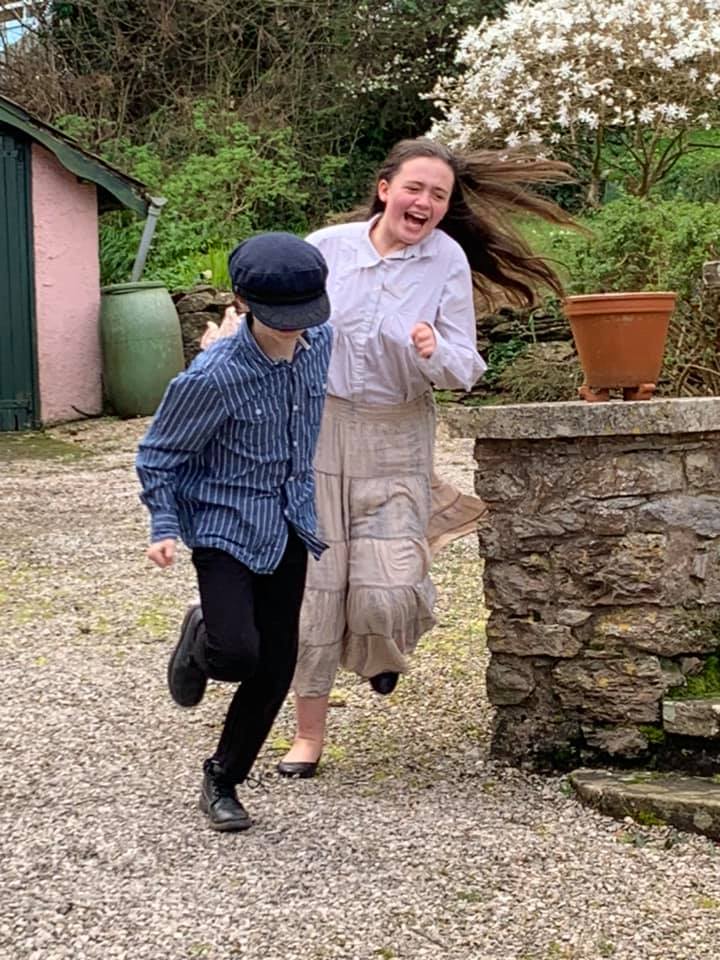
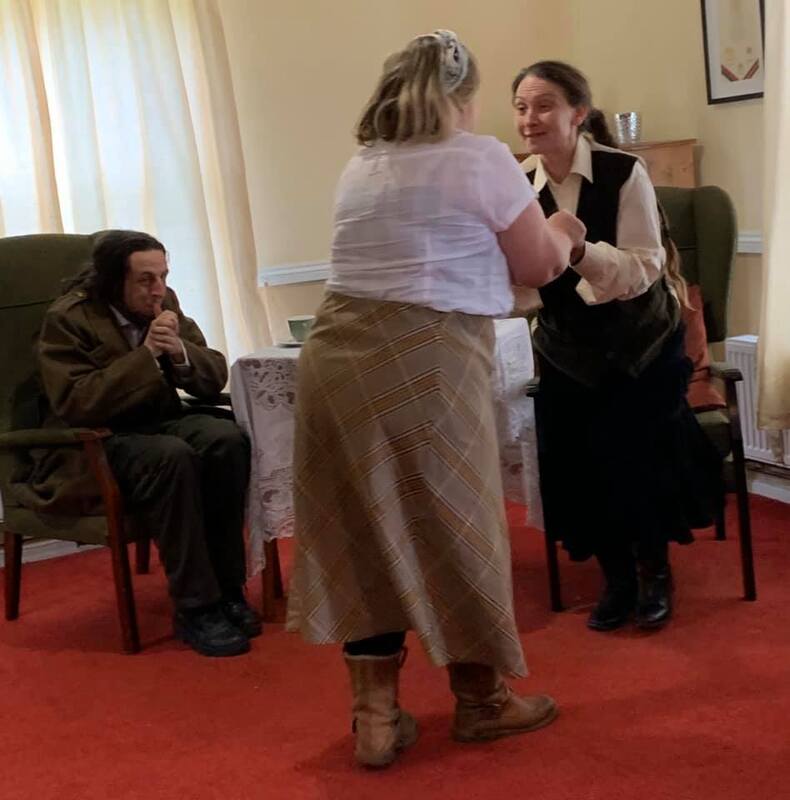
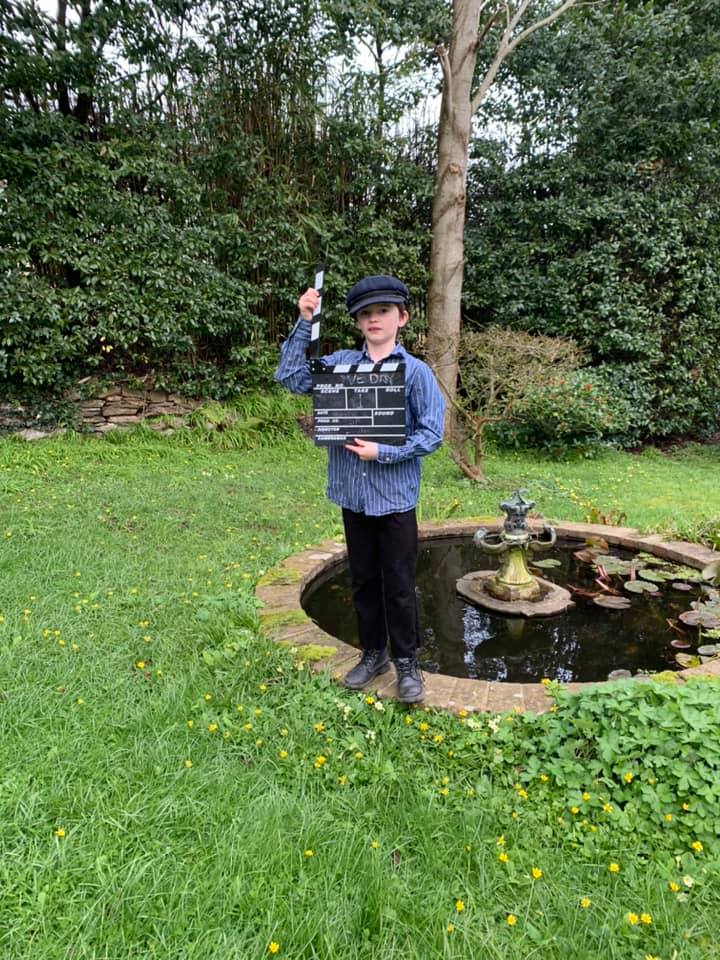
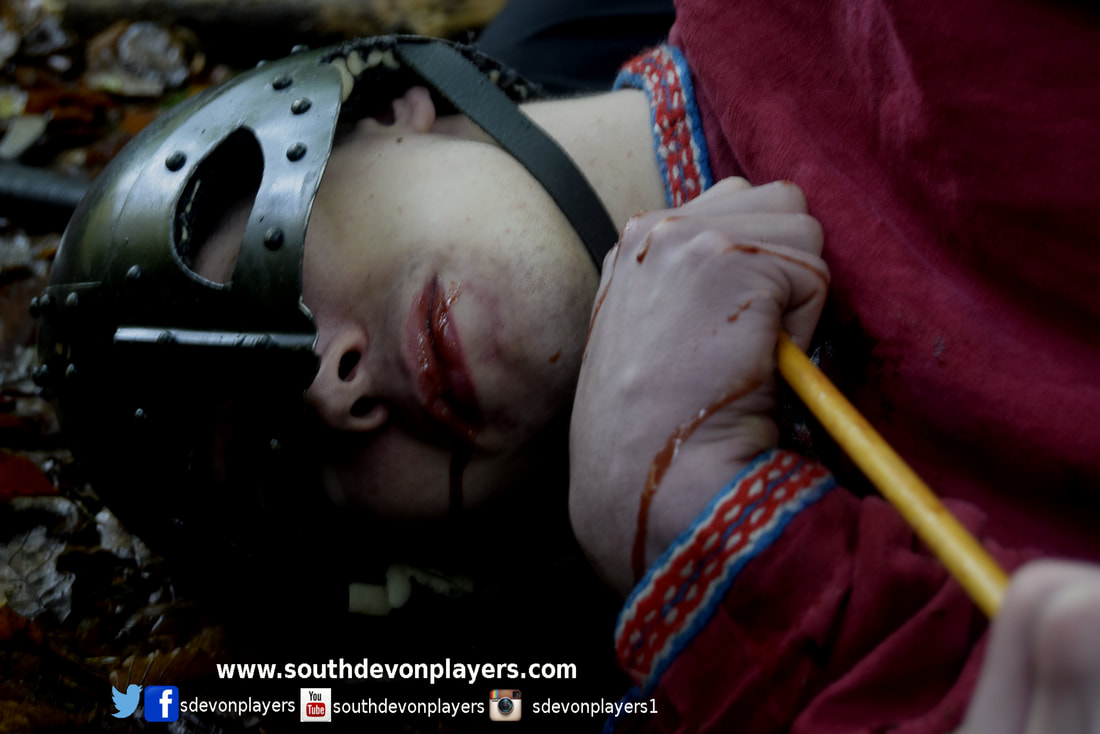
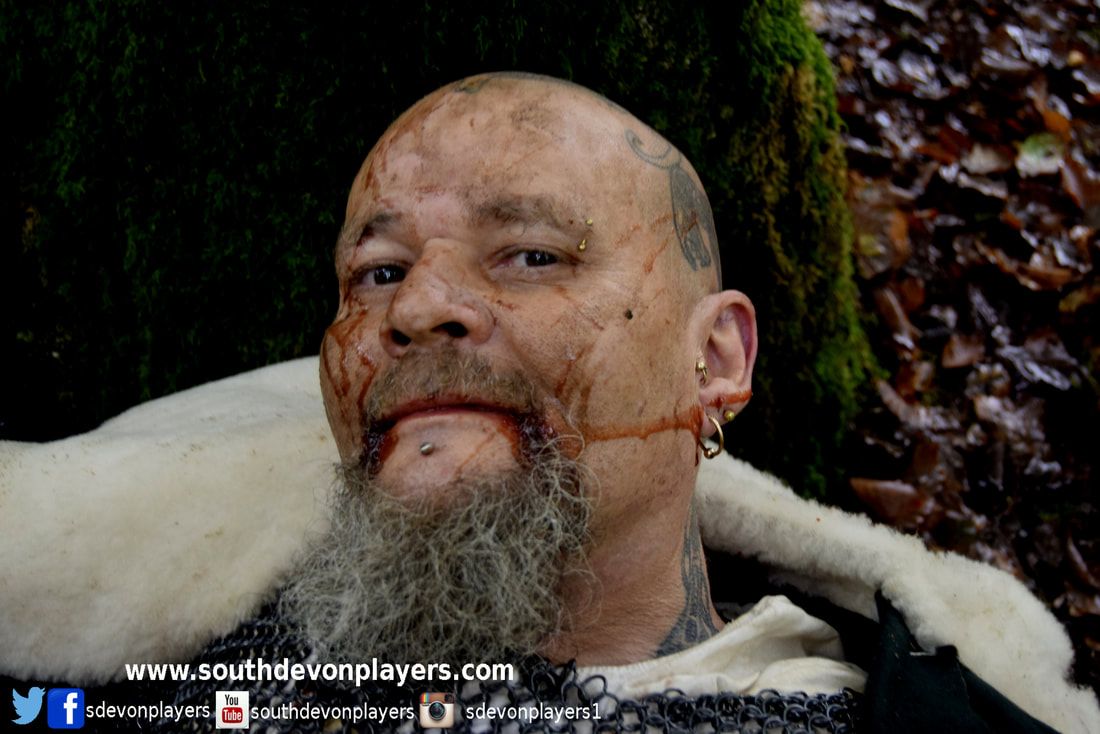
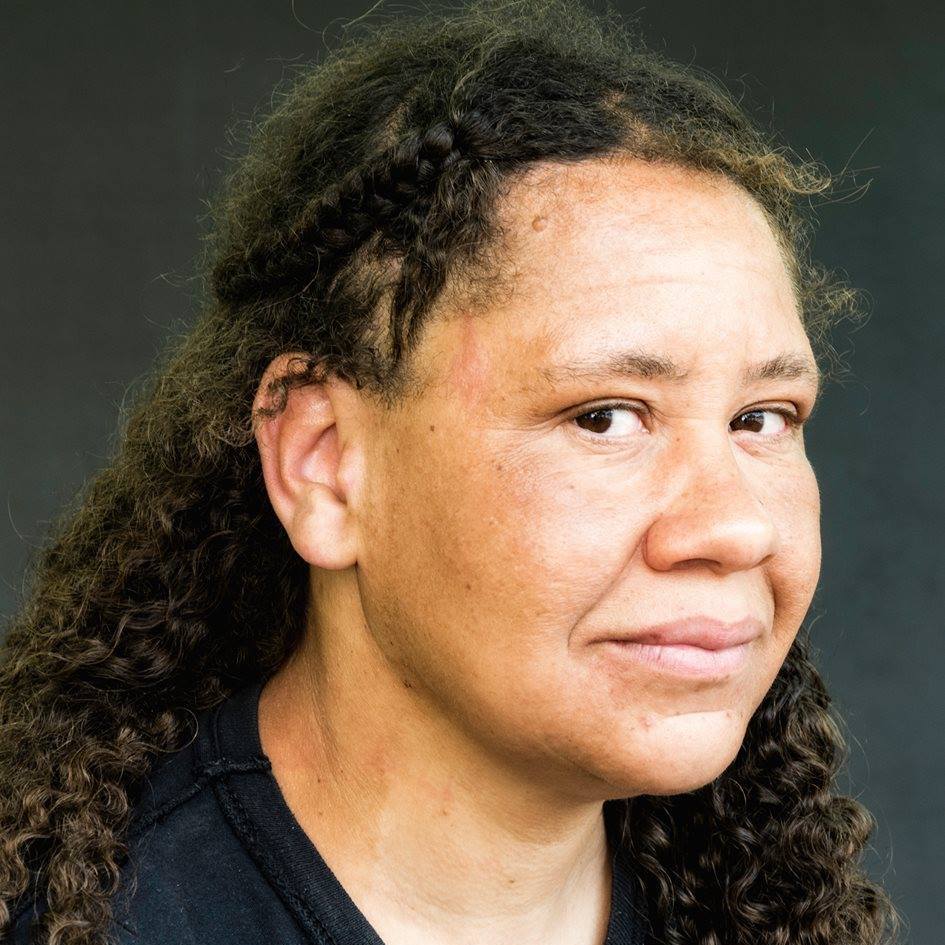
 RSS Feed
RSS Feed
